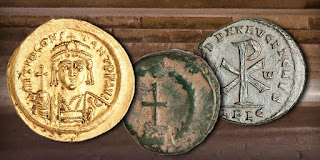I recently became aware of the term
Social Pain in a couple different places: Psychology Today,
HealthLine, and in the book, Where Do We Go From Here by David
Jeremiah. Neuroscientists in Italy have discovered that “social
pain” activates the same brain regions as physical pain. The
researchers also found that witnessing the social pain of another
person activated a similar physical pain response of empathy in most
test subjects. Social pain is the experience of pain as a result of
interpersonal rejection or loss, such as rejection from a social
group, bullying, or the loss of a loved one.
The COVID 19 pandemic made the problem
worse, taking people from the workplace and schools and forcing them
to live in isolation. However, Dr. Jeremiah says that the root cause
of disconnection is spiritual in nature, and I whole-heartedly agree.
When we are disconnected from God, we don't have the love, peace,
joy, kindness or patience to show others. He says we become isolated
in our self-centeredness.
I find myself thinking about “Social
Pain” this disconnection from God and feeling that there is more to
it than just the result of losses in/of relationships. I believe
this pain for many people, can also be attributed to the God shaped
hole or vacuum in the lives of unbelievers, or believers who have
fallen away.
Several years ago, while teaching about
famous mathematicians in history, I can across Blaise Pascal. I was
delighted to learn that this famous mathematician was actually one of
the great Christian minds in the 17th century. Referring to the
spiritual condition of mankind he famously said, “There is
a God–shaped vacuum in the heart of each man, which
cannot be satisfied by any created thing but only by God the
Creator, made known through Jesus Christ.”
King Solomon expressed the same concept
in Ecclesiastes 3:11 when he says that God “has put
eternity into man’s heart.” Even though His image in us is
scarred by sin, within every human soul we have an awareness that
there is something more than what this world offers. Because of this
awareness, when we are separated from God, our sin-sick, rebellious
hearts are desperately running after things to fill the place
reserved in our hearts exclusively for God. Many of mans' depraved
actions are because of this desperate attempt to fill that place in
our hearts that should be, NEEDS to be filled by God.
While Social Pain is definitely due to
losses in relationships or lack of relationships, The lack of belief
in God, the God Shaped Hole, also contributes greatly to Social
Pain. The lack of God in our lives, to me, is the ultimate Social
Pain. How completely horrible it is for those living their lives
without God. This is another reason to reach out to others and share
the Good News of the Gospel, and pray for them.
He has made everything beautiful in
its time. He has also set eternity in the human heart; yet[a] no
one can fathom what God has done from beginning to end.
Ecclesiastes 3:11



.jpg)






